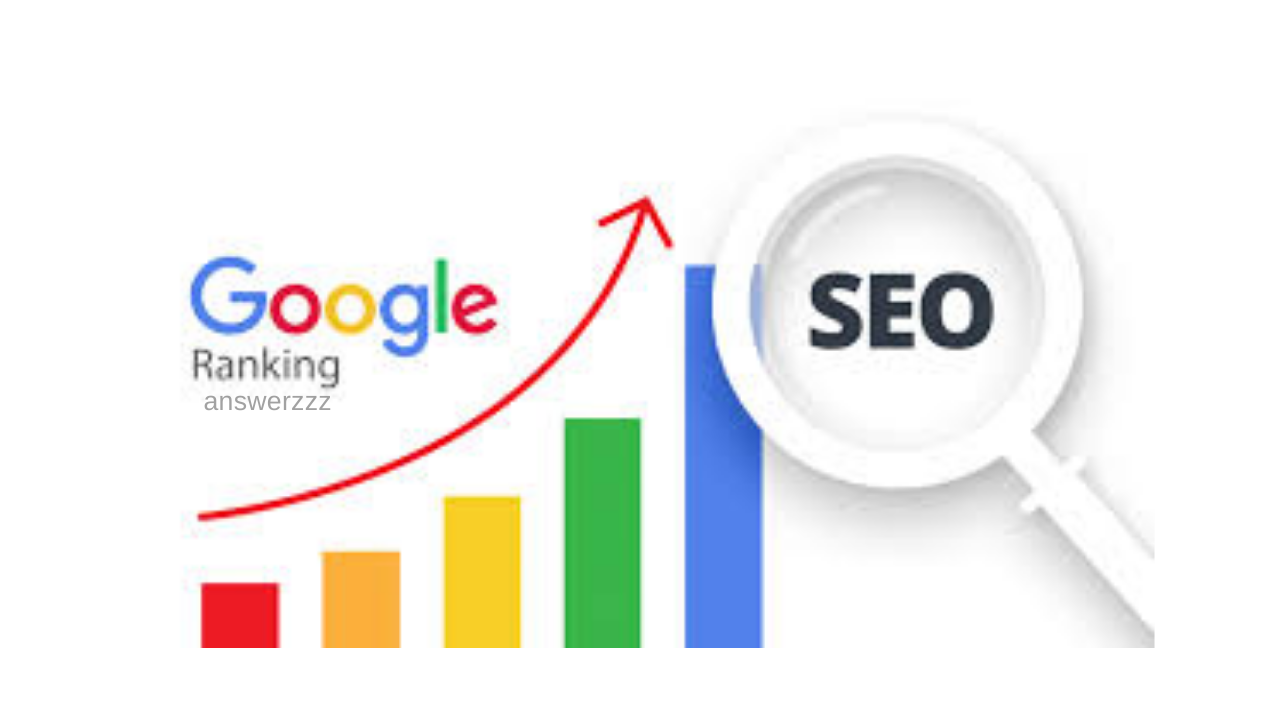In the constantly evolving world of digital marketing, Search Engine Optimization (SEO) remains a powerful tool for improving your website’s visibility and ranking on search engines. In 2025, SEO is expected to continue evolving, with new technologies, algorithms, and best practices reshaping the digital landscape. Whether you’re an established business or a new website owner, understanding and implementing the right SEO strategies will be crucial for staying ahead of the competition. This article explores must-know SEO tricks to help boost your website’s ranking in 2025.
1. Focus on E-A-T (Expertise, Authoritativeness, and Trustworthiness)
![]()
Google’s algorithms increasingly emphasize E-A-T when ranking websites, especially for topics related to health, finance, and legal matters. The higher your website’s E-A-T score, the better your chances of ranking higher in search engine results pages (SERPs). To improve your E-A-T, consider the following tactics:
- Build Your Expertise: Share high-quality, well-researched content that demonstrates your knowledge on the subject. Establish yourself as a thought leader by regularly publishing content that addresses your audience’s pain points.
- Earn Authoritative Backlinks: Backlinks from authoritative websites signal to Google that your content is credible. Build relationships with reputable sites in your industry to acquire valuable backlinks.
- Optimize for Trustworthiness: Ensure your website is secure with HTTPS, provide clear contact information, and include testimonials or case studies to boost trust.
2. Leverage AI and Machine Learning for SEO Optimization
Artificial intelligence (AI) and machine learning are transforming SEO. These technologies help search engines understand content better and predict user intent more accurately. In 2025, AI-powered tools can assist with:
- Content Creation: Use AI tools like ChatGPT or Jasper to create optimized content quickly and efficiently. These tools help you generate topics, outlines, and even fully-written content that matches the needs of your target audience.
- Keyword Research: AI tools like SEMrush and Ahrefs use machine learning to analyze large datasets and predict which keywords are most likely to drive traffic. These tools can help you discover long-tail keywords with high search intent.
- On-Page Optimization: AI-based SEO tools can automatically identify areas for improvement, including meta tags, header tags, and content optimization, ensuring your website remains up to date with best practices.
3. Enhance User Experience (UX) and Core Web Vitals
Google’s Core Web Vitals, which measure your website’s loading performance, interactivity, and visual stability, are expected to remain a significant ranking factor in 2025. To improve your user experience and satisfy these metrics, consider the following actions:
- Improve Page Load Speed: Fast-loading websites are crucial for keeping visitors engaged. Compress images, enable browser caching, and minify code to reduce page load times. Tools like Google PageSpeed Insights can help you analyze and optimize your site’s performance.
- Mobile Optimization: With mobile-first indexing, Google now primarily uses the mobile version of your website for ranking purposes. Ensure your website is fully responsive, providing a smooth and enjoyable experience across all devices.
- Clear Navigation: Make sure your website’s navigation is intuitive. A simple and easy-to-use layout encourages users to spend more time on your site, improving dwell time and reducing bounce rates.
4. Voice Search Optimization
As voice assistants like Siri, Alexa, and Google Assistant become more popular, optimizing your website for voice searches will be essential in 2025. Voice search queries tend to be longer and more conversational than text searches, so adjust your content accordingly:
- Use Natural Language: Integrate long-tail keywords and conversational phrases into your content that mimic how people speak.
- Optimize for Featured Snippets: Voice assistants often pull answers directly from featured snippets, which are short, concise answers that appear at the top of the SERPs. Aim to have your content featured by providing clear, direct answers to common questions in your industry.
- Local SEO: Many voice searches are local, such as “best restaurant near me.” Optimize your website and Google My Business profile for local searches by including location-specific keywords and encouraging customer reviews.
5. Optimize for Search Intent
Understanding and targeting search intent is key to SEO success in 2025. Search intent refers to the reason behind a user’s query—whether they want information, to make a purchase, or something else entirely. Types of search intent include:
- Informational Intent: Users are seeking knowledge. For these queries, provide detailed, informative content that answers their questions comprehensively.
- Navigational Intent: Users are looking for a specific website or page. Ensure your site is easily found with accurate, branded keywords and clear navigation.
- Transactional Intent: Users are ready to make a purchase. Optimize product pages with clear calls-to-action (CTAs), detailed descriptions, and reviews to convert visitors into customers.
6. Build a Strong Content Strategy with Long-Form Content
Long-form content continues to be a valuable asset for SEO in 2025. Content that is in-depth, well-researched, and comprehensive tends to rank better on Google. Here’s how to build a content strategy that works:
- Target High-Volume, Low-Competition Keywords: Use keyword research tools to find high-volume, low-competition keywords that can drive traffic to your site.
- Create Pillar Pages: Pillar pages are comprehensive resources on broad topics that link to more specific pieces of content. These pages help establish your authority and improve internal linking.
- Update Existing Content: Regularly update older posts with fresh information, new keywords, and more value for your audience. Google values fresh content that is relevant and timely.
7. Video Content Optimization
Video content is more important than ever, with platforms like YouTube and TikTok growing exponentially. In 2025, optimizing video content for SEO will be a critical factor in driving traffic and improving rankings:
- Use Descriptive Titles and Tags: When uploading videos, ensure that your titles are clear, descriptive, and keyword-rich. Include relevant tags and a detailed video description to improve searchability.
- Incorporate Transcriptions: Adding transcriptions or captions to your videos helps search engines understand the content and can improve accessibility.
- Optimize for User Engagement: Encourage users to comment, share, and like your videos. High engagement rates signal to Google that your content is valuable, potentially improving its ranking.
8. Featured Snippets and Structured Data
Featured snippets, also known as position zero results, are highly coveted in SEO. These snippets provide direct answers to users’ queries, often pulling content from websites and displaying it above organic results. To increase your chances of appearing in featured snippets, follow these strategies:
- Use Clear, Concise Answers: Directly answer common questions in your content, ideally in a bullet point or numbered list format.
- Implement Schema Markup: Schema markup is a type of structured data that helps search engines understand the content on your website. By adding schema to your pages (e.g., for reviews, events, or articles), you increase the likelihood of appearing in rich snippets and other special search features.
9. Focus on Local SEO
Local SEO will continue to be a driving force in 2025, especially for businesses with physical locations. If your business serves a specific geographical area, optimizing for local search is crucial:
- Optimize Your Google My Business (GMB) Profile: Claim and optimize your GMB profile with accurate information, photos, hours of operation, and customer reviews.
- Use Local Keywords: Include location-specific keywords in your content, meta tags, and header tags to improve visibility in local search results.
- Encourage Customer Reviews: Positive reviews are a powerful ranking factor for local SEO. Encourage customers to leave reviews on Google and other relevant platforms.
10. Build a Robust Backlink Profile
Backlinks remain one of the most important ranking factors for SEO. To boost your website’s ranking in 2025, focus on building a diverse and authoritative backlink profile:
- Guest Posting: Write guest posts for reputable websites in your industry to acquire valuable backlinks and increase your visibility.
- Broken Link Building: Identify broken links on authoritative websites and offer your content as a replacement.
- Competitor Analysis: Use tools like Ahrefs or SEMrush to analyze your competitors’ backlinks and identify potential opportunities for link building.
How to Leverage AI Tools in 2025: A Complete Guide for Beginners
11. Implement User-Generated Content (UGC)
User-generated content (UGC) is an excellent way to build trust and enhance your SEO efforts. When users engage with your brand by leaving reviews, sharing photos, or commenting on your blog, it provides social proof that your website is trusted. To leverage UGC:
- Encourage Reviews and Testimonials: Actively request reviews and testimonials from your customers to enhance your credibility and trustworthiness.
- Use Social Proof: Showcase user-generated content on your website, such as social media posts or product reviews, to improve engagement and increase dwell time.
12. Monitor and Analyze Your SEO Performance
Finally, to stay on top of SEO trends and optimize your efforts, regularly monitor your website’s SEO performance. Use tools like Google Analytics, Google Search Console, and SEMrush to track your rankings, traffic, and conversions. Regular analysis helps you identify areas for improvement and adjust your strategy accordingly.
As we move into 2025, SEO will continue to evolve in response to technological advances and changing user behaviours. By focusing on E-A-T, optimizing for search intent, improving user experience, and leveraging AI tools, you can stay ahead of the competition and boost your website’s ranking. Additionally, focusing on local SEO, video optimization, and backlink building will provide further opportunities for success. Implement these SEO tricks and keep refining your strategy to maintain a competitive edge in the ever-changing digital landscape.





